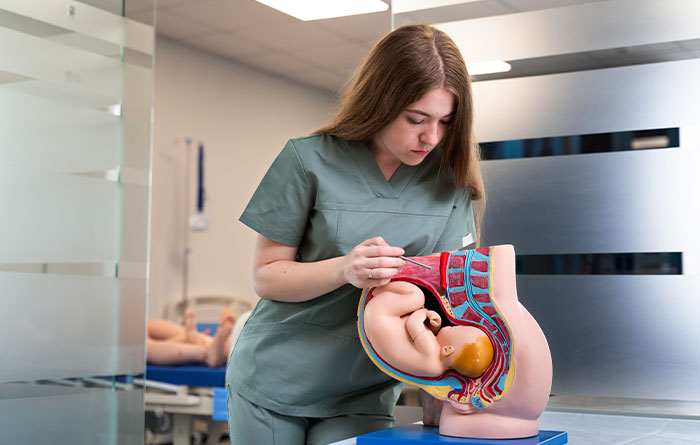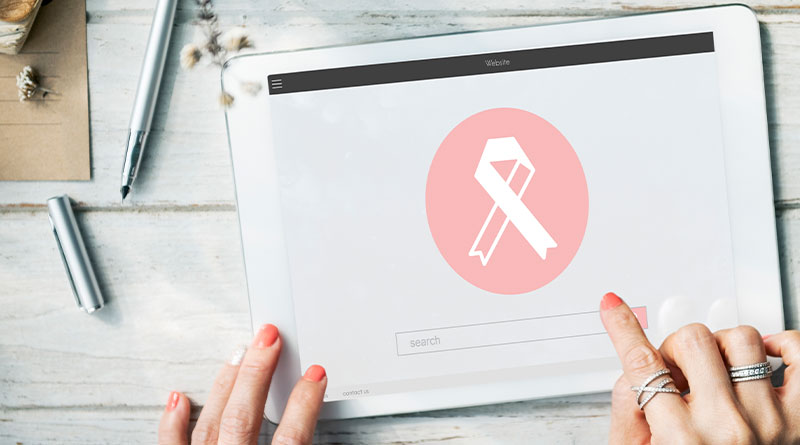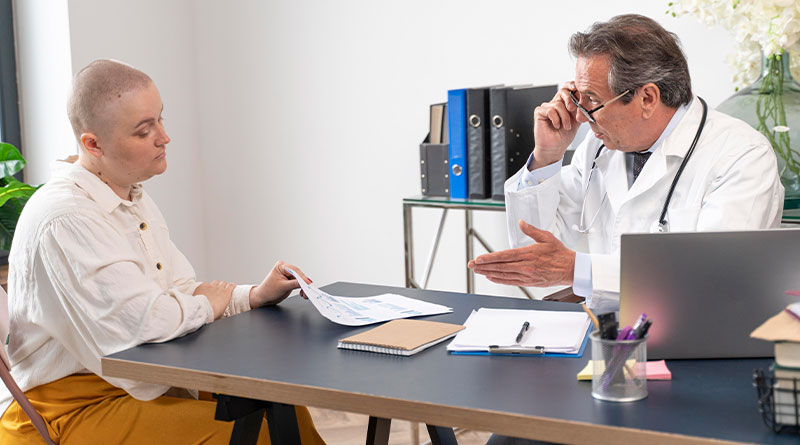If there’s one medical test that makes people cringe, it’s the colonoscopy. Just the idea of it is enough to make many adults avoid scheduling one altogether. But here’s the big question most people have: “Are colonoscopies really necessary?”
The short answer is yes — for most adults, they’re not just necessary but potentially life-saving. But like most things in medicine, the longer answer depends on your age, family history, risk factors, and overall digestive health.
In this blog, we’ll break down when you should get a colonoscopy, why it’s so important, and whether you really need a colonoscopy or if there are alternatives. Let’s clear up the confusion once and for all.
What Is a Colonoscopy?
Before we dive into whether a colonoscopy is necessary, let’s quickly explain what it actually is.
A colonoscopy is a diagnostic procedure where a doctor uses a thin, flexible tube with a tiny camera (called a colonoscope) to examine the inside of your colon (large intestine) and rectum. This allows them to look for:
- Polyps (small growths that could become cancerous)
- Colon cancer or early signs of it
- Inflammation or ulcers (linked to conditions like Crohn’s disease or ulcerative colitis)
- Bleeding, pain, or unexplained digestive symptoms
It’s considered the gold standard for detecting colorectal cancer — one of the most common cancers in the world.
Why Colonoscopies Are So Important
So, is a colonoscopy necessary? Let’s look at why doctors insist on them:
1. Early Detection Saves Lives
Colon cancer is often silent in its early stages, showing no symptoms until it’s advanced. A colonoscopy can detect precancerous polyps before they turn into cancer, and removing them early can dramatically reduce your risk.
In fact, studies show that regular colonoscopies can cut the risk of colorectal cancer by 60% to 90%.
2. It’s More Than Just a Cancer Screening
While most people associate colonoscopies with cancer prevention, they’re also used to investigate other digestive issues like:
- Chronic diarrhea or constipation
- Unexplained weight loss
- Rectal bleeding
- Abdominal pain
If you’re experiencing any of these, your doctor may recommend a colonoscopy — not just to rule out cancer, but to identify the underlying cause.
3. Polyps Are More Common Than You Think
By age 50, about 25% to 30% of adults will have polyps. Most are harmless, but some types (called adenomas) can turn into cancer over time.
Without a colonoscopy, you’d have no way of knowing they’re there — and no chance to remove them before they become dangerous.
When Should You Get a Colonoscopy?
One of the most common questions doctors hear is: “When should you get a colonoscopy?”
The general recommendation is:
Average-risk adults: Start regular screenings at age 45 and repeat every 10 years if no issues are found.
High-risk individuals: If you have a family history of colorectal cancer, certain genetic conditions, or inflammatory bowel disease, your doctor might recommend starting earlier (often at 40 or younger) and repeating more frequently.
Here’s a quick breakdown:
| Risk Level | When to Start | How Often |
|---|---|---|
| Average Risk | Age 45 | Every 10 years |
| Family History | Age 40 or 10 years before the relative’s diagnosis | Every 5 years |
| Personal History of Polyps | As recommended by your doctor | Every 3-5 years |
| Inflammatory Bowel Disease | Varies (often 8-10 years after diagnosis) | Every 1-3 years |
Even if you feel perfectly healthy, you should still follow these screening guidelines. Most colon cancers develop silently.
Do I Really Need a Colonoscopy If I Feel Fine?
A lot of people wonder, “Do I really need a colonoscopy if I don’t have symptoms?” The answer is almost always yes.
Colon cancer is often called a “silent killer” because it rarely causes symptoms until it’s advanced. By the time you notice signs like blood in your stool, weight loss, or pain, the disease might already be at a later stage.
Screening before symptoms appear is what makes colonoscopies so effective. It’s like getting regular oil changes for your car — you don’t wait for the engine to explode before taking action.
Are Colonoscopies Necessary for Everyone?
This is where it gets a little more nuanced. While colonoscopies are strongly recommended for most adults, there are exceptions.
You might not need one if:
- You’re under 45 and have no symptoms or risk factors
- You’ve had a recent normal colonoscopy, and your doctor says you can wait for the next one
- You and your doctor decide that a different screening method (like a stool-based test) is appropriate for your situation
However, skipping a colonoscopy just because it’s uncomfortable or inconvenient is not a good reason. The benefits far outweigh the temporary discomfort.
Are There Alternatives to Colonoscopy?
If you’re still hesitant, you might be relieved to know there are alternative screening options. These include:
- Fecal immunochemical test (FIT): A stool test done annually
- Fecal occult blood test (FOBT): Detects hidden blood in stool, also done yearly
- Cologuard (DNA stool test): Done every 3 years
- Flexible sigmoidoscopy: A partial colon exam done every 5 years
While these tests are useful, none are as comprehensive as a colonoscopy. If any of them come back positive, you’ll still need a colonoscopy for confirmation.
Common Reasons People Avoid Colonoscopies
Even knowing the benefits, many people still skip colonoscopies. Here are the most common excuses — and why they don’t hold up:
1. “The prep is too unpleasant.”
Yes, drinking the bowel prep solution and spending hours in the bathroom isn’t fun. But it’s just one day of discomfort for 10 years of peace of mind.
2. “I’m embarrassed.”
Doctors perform thousands of colonoscopies every year — for them, it’s routine. Your comfort, privacy, and dignity are always respected.
3. “I’m healthy, so I don’t need it.”
Even the healthiest people can develop polyps or cancer. Being symptom-free doesn’t mean you’re risk-free.
What Happens During a Colonoscopy?
If fear of the unknown is stopping you, here’s a quick rundown of what actually happens:
- Preparation (the day before): You’ll follow a special diet and take a bowel-cleansing solution to empty your colon.
- Sedation: Most people are given light sedation or anesthesia, so you won’t feel anything.
- The procedure involves the doctor gently inserting a colonoscope to inspect the colon and remove any polyps that are found. The procedure takes about 30 to 45 minutes.
- Recovery: You’ll wake up feeling groggy but usually go home the same day. Most people return to normal activities the next day.
It’s simple, safe, and over before you know it.
How Often Are Colonoscopies Needed?
Another common question is: “How often are colonoscopies needed?”
If your first colonoscopy is clear and you’re at average risk, you won’t need another for 10 years. However, if polyps are found, or if you have a higher risk, your doctor may recommend more frequent screenings — typically every 3 to 5 years.
Are Colonoscopies Really Necessary?
So, are colonoscopies necessary? The overwhelming consensus from doctors, cancer experts, and medical organizations is YES.
- They detect cancer early — or even prevent it entirely.
- They reveal hidden issues before symptoms appear.
- They provide peace of mind about your digestive health.
Skipping a colonoscopy might save you a few hours of discomfort, but it could cost you your life. It’s one of the few medical tests that truly has the power to save lives through early detection and prevention.
Final Thoughts
It’s completely normal to feel nervous about scheduling your first colonoscopy. But remember — this simple test is one of the most powerful tools in modern medicine.
If you’re over 45 or have risk factors, talk to your doctor and don’t put it off. The peace of mind you’ll get — and the potential to prevent cancer before it starts — is worth every minute.
Still wondering, “Do I really need a colonoscopy?” The answer is: if you’re due for one, yes — absolutely.
FAQs
Q1. What are the signs that you need a colonoscopy?
Ans: While colonoscopies are recommended as a routine screening starting at age 45, certain symptoms may require one sooner. Talk to your doctor if you experience:
- Persistent abdominal pain or cramping
- Blood in your stool or rectal bleeding
- Unexplained weight loss
- Chronic constipation or diarrhea
- Changes in bowel habits lasting more than a few weeks
These can indicate underlying issues such as polyps, inflammation, or colorectal cancer, and a colonoscopy is the most accurate way to diagnose them.
Q2. Do I need a colonoscopy at 30?
Ans: For most people, a colonoscopy isn’t necessary at 30. However, you may need one earlier if you have:
- A family history of colorectal cancer or polyps
- A genetic condition such as Lynch syndrome or FAP
- Chronic inflammatory bowel disease (IBD)
- Persistent symptoms like bleeding, weight loss, or bowel changes
In these cases, your doctor might recommend starting screening 10 years earlier than the age your relative was diagnosed, which sometimes means having your first colonoscopy in your 30s or even 20s.
Q3. Can a colonoscopy cause constipation?
Ans: It’s rare, but some people do experience temporary constipation after a colonoscopy. This usually happens due to:
- Dehydration from bowel prep
- A low-fiber diet before and after the procedure
- Slower bowel movements after sedation
To prevent this, drink plenty of fluids, eat fiber-rich foods, and stay active after the procedure. Constipation typically resolves within a few days.
Q4. Is a colonoscopy really necessary at 45?
Ans: Yes, a colonoscopy is highly recommended starting at age 45 for people at average risk. This is because the risk of colorectal cancer rises significantly in your mid-40s, and early detection dramatically improves treatment success.
Even if you feel healthy and have no symptoms, regular screenings can find and remove precancerous polyps before they turn into cancer.
Q5. What is the new procedure instead of a colonoscopy?
Ans: Several non-invasive alternatives to colonoscopy are now available, including:
- FIT test: Checks for hidden blood in stool (annually)
- Cologuard (stool DNA test): Detects cancer-related DNA markers (every 3 years)
- CT colonography (virtual colonoscopy): Uses imaging to scan the colon (every 5 years)
While these tests are convenient, they are not as thorough as a colonoscopy. If results are abnormal, you’ll still need a colonoscopy for confirmation and treatment.
Q6. When should a female get a colonoscopy?
Ans: Women should follow the same screening guidelines as men. That means starting regular colonoscopies at age 45 and repeating every 10 years if no issues are found.
However, if a woman has risk factors, such as family history, previous polyps, or digestive symptoms, she may need to start screening earlier. Colon cancer affects both men and women almost equally, so timely screening is just as important for females.
Sahil Sachdeva is the Founder of curemedoc.com and a Digital Marketing professional with years of experience. If you need help in Content writing and want to increase your website ranking, connect with him, as he has some premium websites where you can share blogs with DoFollow links and increase your website’s ranking on Google.





